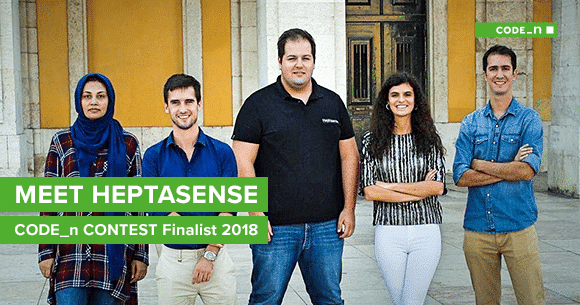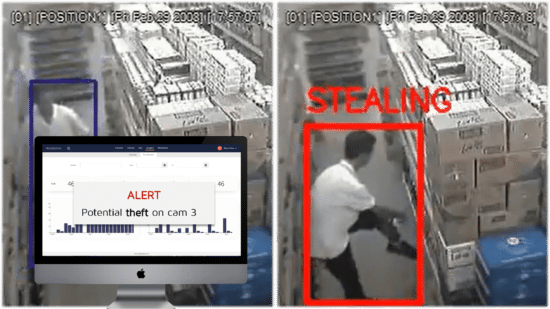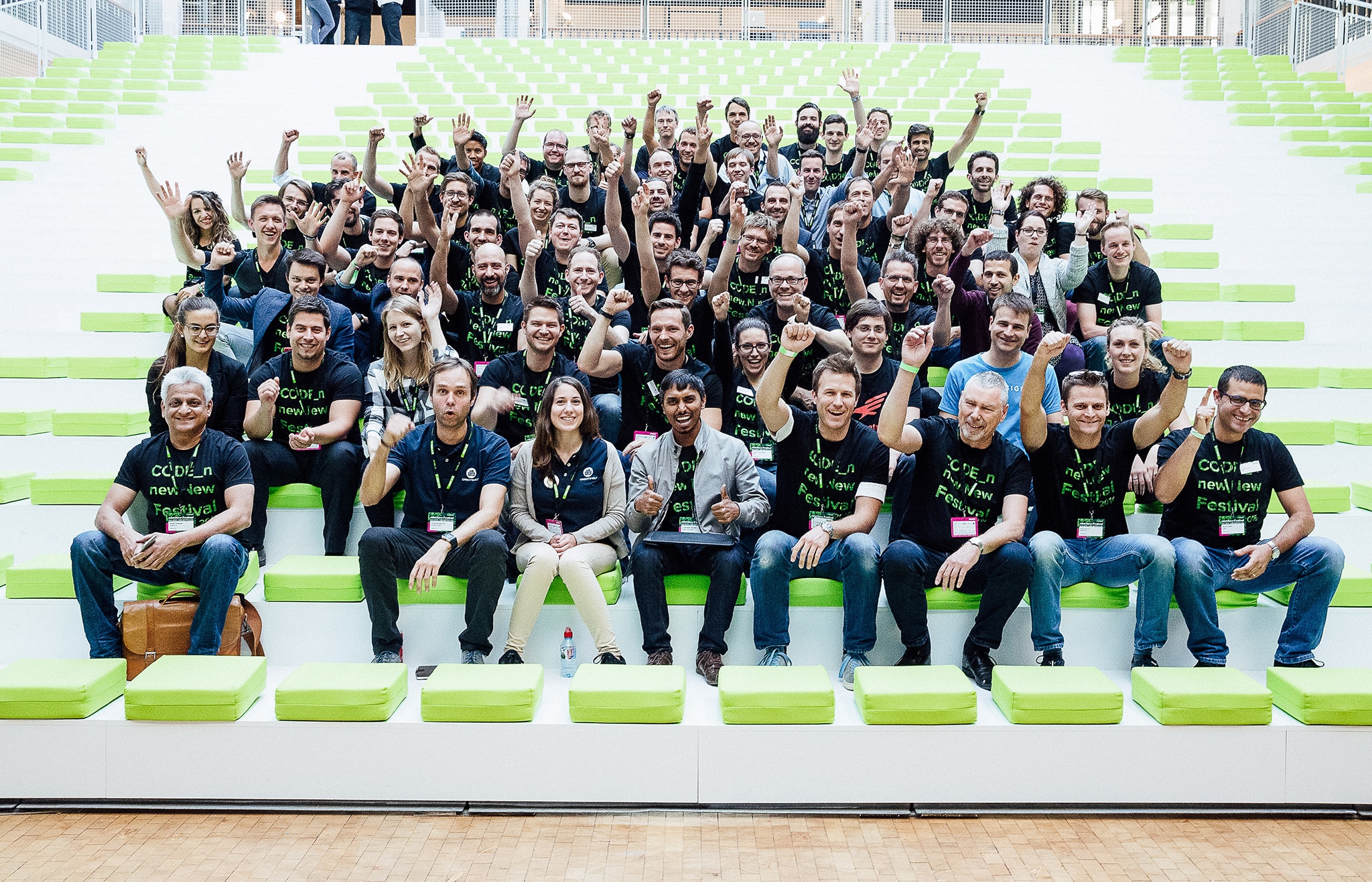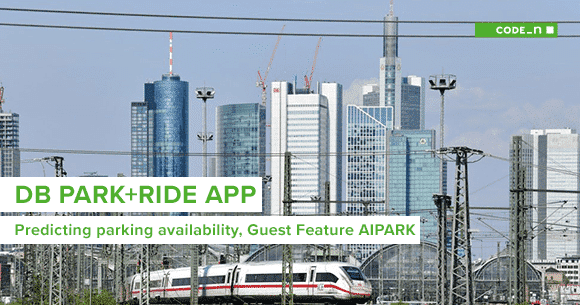MEET OUR CODE_N CONTEST FINALISTS 2018: Heptasense from Portugal
 We’ll introduce you today to a CODE_n CONTEST Finalist aiming to make the world a safer place for all of us. Did you know that 95% of threats recorded by surveillance cameras are actually not noticed? The AI-based software developed by the Portuguese startup Heptasense allows surveillance cameras to autonomously detect any threat – theft, armed assault, suspicious behavior, area breaches, general actions like smoking, running, falling – and for security teams to be alerted in real time. We’ve had an insightful chat with CEO and co-founder Ricardo Santos explaining how the software works and why it’s making the world not only safer but also fairer.
We’ll introduce you today to a CODE_n CONTEST Finalist aiming to make the world a safer place for all of us. Did you know that 95% of threats recorded by surveillance cameras are actually not noticed? The AI-based software developed by the Portuguese startup Heptasense allows surveillance cameras to autonomously detect any threat – theft, armed assault, suspicious behavior, area breaches, general actions like smoking, running, falling – and for security teams to be alerted in real time. We’ve had an insightful chat with CEO and co-founder Ricardo Santos explaining how the software works and why it’s making the world not only safer but also fairer.
Lisa: Hi Ricardo, what is Heptasense all about?
Ricardo: Heptasense is security camera software that analyzes human behavior to detect threats to security, customers, or workers. When a threat is detected, an alert is sent to somebody in a position to prevent or mitigate the threat. By leveraging a proprietary method based solely on body movements, Heptasense recognizes behavior but eliminates bias stemming from biometric features. The process is very simple: Companies provide a behavior list and the Heptasense software is taught to recognize these patterns using artificial data. Heptasense has offices in Lisbon, Paris, and Munich, and is used by companies worldwide in the retail sector (theft detection), factories (worker safety), and smart city projects.
Lisa: How did you come up with the idea?
Ricardo: The two founders combine experience in artificial intelligence and the development of critical systems. In our previous jobs, we noticed huge flaws in security, especially between different verticals (banks, retailers, airports, factories, warehouses, logistics). The question was, how could security and system efficiency be improved without jeopardizing personal privacy? The biggest challenge was that current artificial intelligence algorithms require intensive teaching involving huge amounts of data. This is not feasible for security applications. We had to develop software that would work with any camera system. It would have to learn all human behavior without relying on real data derived from real people.
Lisa: What are you trying to solve?
Ricardo: There are already more than 700 million cameras in operation worldwide, but only 2% are actually monitored. Worse still, monitoring images requires a person to watch multiple screens for hours on end. Experience shows that this becomes extremely inefficient after around 20 minutes and 95% of threats are actually not noticed. On average, retailers lose around €120,000 per year through theft. With Heptasense, a retailer operating 100 stores could save more than €12 million per year by preventing theft. At the same time, it could invest fewer resources in security, for staff and surveillance rooms. Companies with factories and warehouses could also save millions by avoiding injury to workers.
Lisa: AI that truly understands human behavior – this motion intelligence technology is quite impressive, but are there any ethical issues or legal restrictions?
Ricardo: Heptasense was designed to comply with the new General Data Protection Regulation in Europe. It also adheres to regulations in other countr

ies outside Europe. Most importantly however, it is ethically sound. The aim of Heptasense is to turn cameras into smart sensors capable of detecting threats by eliminating the person behind the camera. Of course, any final decision would have to be taken by the real person
who received the alert, and that person may need to watch videos to assess alerts, but ultimately the idea with Heptasense is not to replace security staff but rather to help staff improve the efficiency of their work. No data is stored and nobody can be tracked or identified using Heptasense. This is because the core technology only focuses on body movements. Heptasense is totally unbiased when it comes to the ethnicity, gender, age, or criminal background of someone on the camera, so it helps eliminate racism, xenophobia, and the kinds of pre-judgments commonly encountered in surveillance.
Lisa: Thank you for the interview, Ricardo!
Meet Heptasenseat the new.New Festival 2018 this fall, in Stuttgart!






Write a comment